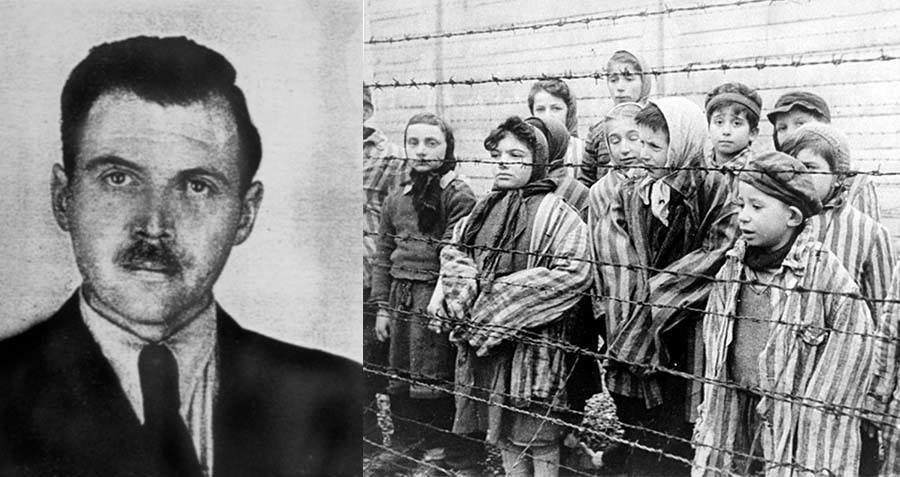Juan Carlos Navarro said that even Dr. Mengele (photo) would be welcome to live and invest in Panama.
The New Yorker just ran an article called "The Secret Life of Panama City" that is definitely worth reading in full. Written by Jon Lee Anderson, who knows his Panama stuff, it refers back to an earlier story in which then-mayor Juan Carlos Navarro was interviewed. That paragraph is worth quoting in full:
A few days later, I asked Panama City’s mayor, Juan Carlos Navarro, a Harvard-educated man with Presidential ambitions, about his own vision for Panama and how he felt about its louche reputation, especially its tradition of harboring questionable characters like Serrano. He did not like my line of questioning. “I’ve always thought of Panama as sort of like Switzerland,” he told me. He had scowled when I suggested that his country’s reputation abroad was more like that of Casablanca, or Tangiers. “They bring money, they invest here. What’s wrong with that?” he said. But, I asked, what if someone like a war criminal or the next Mengele decided to come to Panama? Navarro shrugged. “That would be no problem, either,” he said. “I look at it as a kind of service provided by Panama to the international community. The world can think of Panama as a refuge of last resort. . . . And if they want to live here quietly, bienvenidos.’”
Navarro describes here to the tee the dominant thinking among Panama's business, legal and political class. Forget all the talk about due diligence, transparency, and how they really didn't know that war criminals and corrupt leaders were behind the shell companies they provided - this is, in a nutshell, the moral code that underpins the business of law firm Mossack & Fonseca, now in hot water because of the Panama Papers: "We don't care who you are, where you're from or what you did; just bring money."
Mossack & Fonseca - the latest in a long line
This website is filled with examples of how Panama has made profiteering of crime and corruption its business model.
Over the course of the years, we had for example Arturo Vallarino, then vice-president, openly promoting investments in a teak swindle run by American fugitive Tom McMurrain in the Bocas del Toro province. When asked about it, then-Attorney General José Antonio Sossa told this reporter that, "if it's gringos ripping off gringos, we don't care." The US did care, and McMurrain was arrested and extradited on charges dating two scams back.
We had for example then-president Martín Torrijos advertising the Switzerland-based reforestation scam "Prime Forestry," connected to the Genovese mafia family, until the Swiss authorities closed them down. Torrijos then proceeded to cancel the warrant for the arrest of a former governor on corruption charges, Richard Fifer, so that they could promote the Petaquilla gold mine together. This train wreck of a company is now defunct and Fifer in prison facing various charges of fraud, theft, and so on.
Subsequently we had then-legislator of one of the governing parties, José Isabel Blandón, propose a law that our investigations learned was entirely drafted by yet another foreign career criminal, Monte Friesner, in conjunction with Blandón's partner Herbert Young in law firm Blandón & Young. Blandón is now mayor of Panama City. The law would facilitate the prepaid credit card business of Friesner, and was co-signed by Alcibiades Vasquez Velasquez, now a minister in the Varela government. The credit card business was closed down a year later by Panama's financial authorities, but only after MasterCard had already pulled the plug on it and the Cayman Islands authorities had frozen Friesner's bank accounts on suspicion of money laundering.
Get the picture?
It's an attack on Panama!
These days, we're hearing endless claims coming from the government and panicky lawyers that the scandals uncovered from Mossack & Fonseca's offices don't represent Panama but only concern one single law firm. Nothing could be further from the truth. This kind of sleaze is everywhere and it is obvious even to casual observers that Panama is on the verge of collapsing under the weight of its own corruption scandals.
The deeply rooted "criminals welcome"-mentality is also what explains the hapless and amateurish response to the Panama Papers. President Varela and his entourage keep talking about the "image" of Panama and how this is all an "attack on the country." What they simply can not understand is that it is not the country itself, but the "ethics" of war profiteering that is causing indignation and rejection across the globe; that a majority of humanity thinks that it is wrong to accept the next Dr. Mengele and his "investments" in Panama. People expect deeds, action, but Panama's government is paralyzed by fear, spooked by the idea that they might have to take legal action against the culprits, because there would be no end to it: Today it's Mossack & Fonseca, but tomorrow we could have the Odebrecht Papers or the Morgan & Morgan Papers, and then what?
Indeed, and then what. Mossack & Fonseca is of course going down. The most likely outcome is that, if Panama doesn't seriously overhaul its legal and financial industry, many others will fall like dominoes. Dirty money is shy, it doesn't want to be exposed because some law firm flunks its computer security, and whether Panama changes its attitude or not, the Dr. Mengeles will stop coming anyway.

It is so sad that a country with so much potential continuously shoots itself in the foot with the world headlines of the corruption, money laundering and scandal. The old adage that even bad publicity is good does not apply to this type of behavior. If Panamá is to ever take a place of prominence in the international finance sphere, it is going to have to clean up its act. Don’t hold your breath.